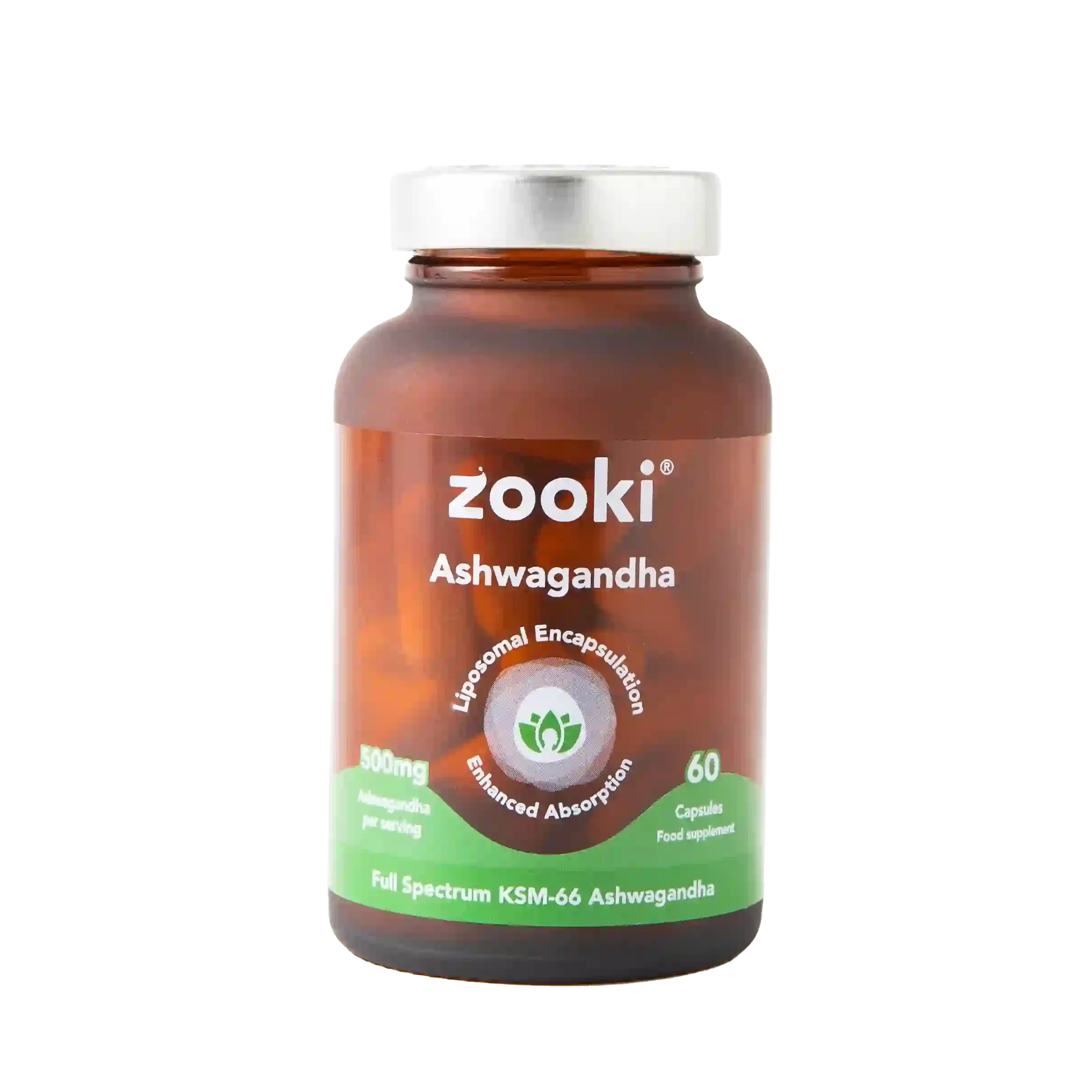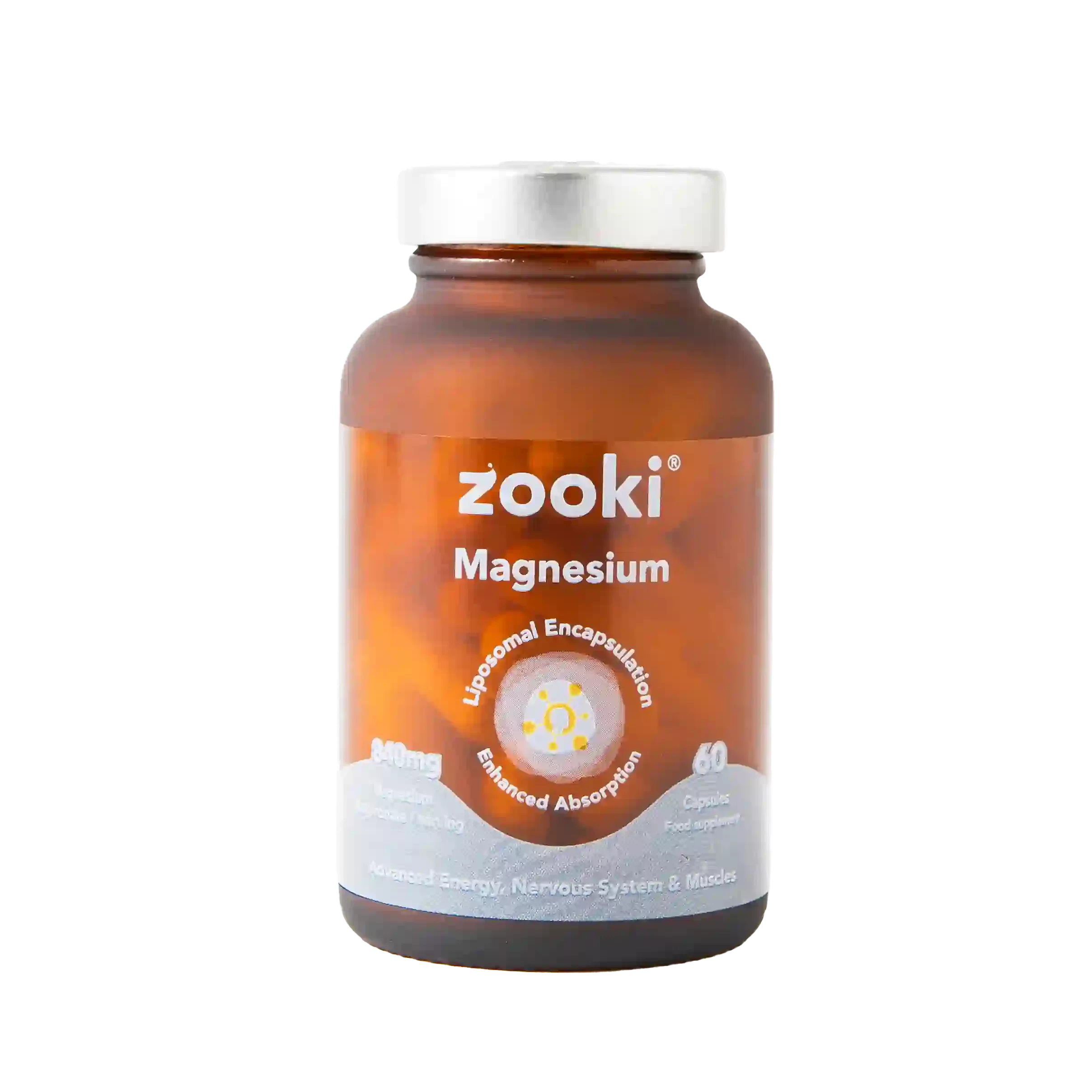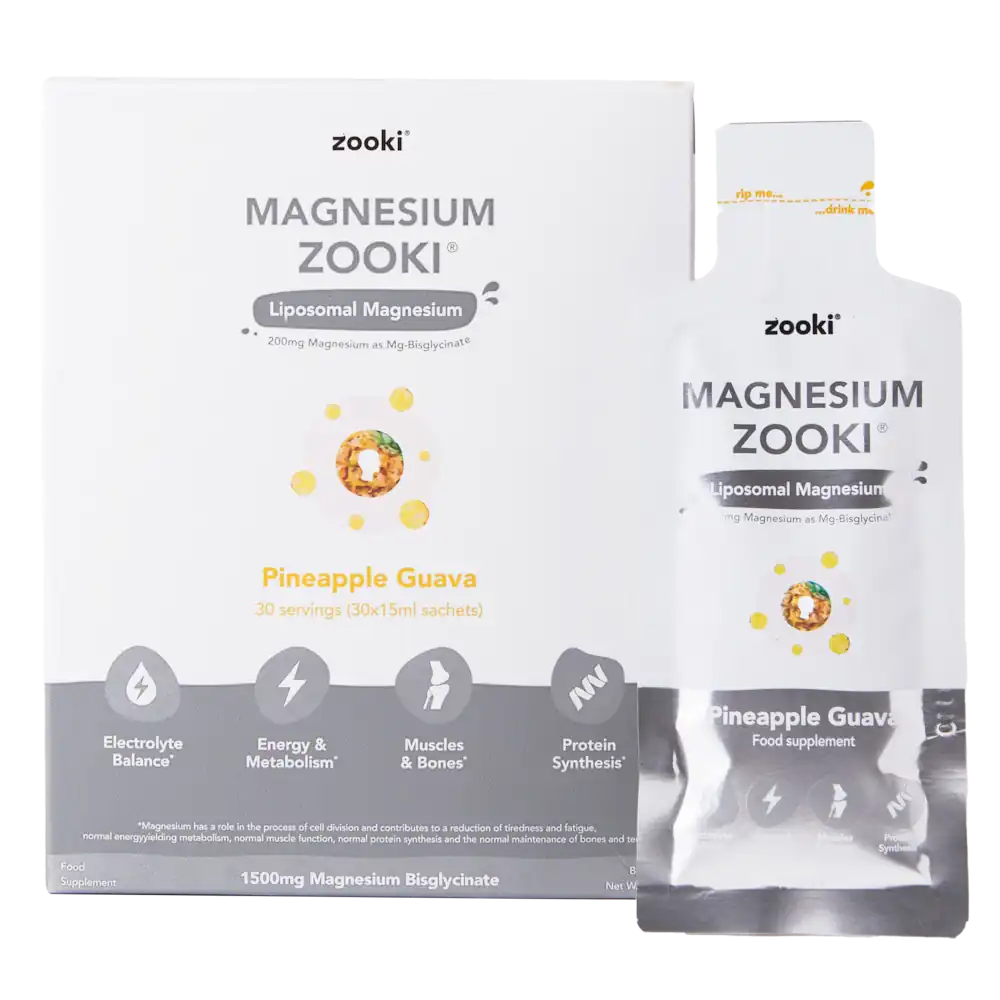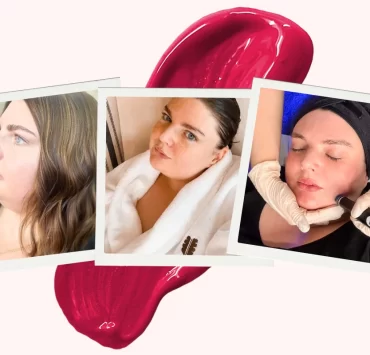Magnesium was everywhere in 2024—and it’s not just hype. Touted for its ability to help you sleep better, ease stress, and even support hormonal issues, like PMS, it’s become the go-to supplement for anyone wanting to feel calmer, more rested, and balanced. In fact, magnesium has become the second most popular supplement, with 57.9% of users incorporating it into their routines, even surpassing fish oil.
But what’s driving this surge in popularity? Why does it work, and how do you pick the best type?
To help you cut through the noise, we spoke with Sarah Carolides, Head of Nutrition at Zooki. Sarah breaks down why magnesium is a true game-changer and explains how Zooki’s liposomal formula can support your body and mind—whether you’re looking for deeper sleep, less stress, or smoother hormonal balance.
If you buy something, we may earn an affiliate commission.
Why is magnesium so popular right now?
“Magnesium is involved in over 400 chemical reactions in the body,” Sarah begins. “It’s essential for muscle and nerve function, blood sugar control, and blood pressure regulation. But what’s really exciting is its role in reducing stress and promoting relaxation, which is why it’s become such a hot topic.”
Sarah highlights the growing awareness of magnesium deficiency as another driver of its popularity. “Many people are unknowingly deficient in magnesium, which can lead to issues like fatigue, irritability, anxiety, and poor sleep. It’s a vicious cycle because stress depletes magnesium levels even further, making supplementation even more important.”
What makes Zooki Magnesium stand out?
“At Zooki, we use liposomal technology to significantly enhance absorption,” Sarah explains. “This technology was originally developed in medicine to protect drugs as they passed through the acidic environment of the stomach. By wrapping magnesium in tiny lipid spheres, we ensure it can bypass the gut’s active transport systems and be absorbed directly into the bloodstream.”
She adds, “This process makes Zooki Magnesium four times more absorbable than traditional supplements. It also minimises digestive side effects, which can be an issue with other forms of magnesium.”
What is magnesium glycinate, and why is it special?
Sarah is a big advocate for magnesium glycinate. “It’s a combination of magnesium and glycine, an amino acid with calming properties. This form of magnesium is not only highly bioavailable but also gentle on the stomach, making it suitable for people who are sensitive to other forms.”
She continues, “Magnesium glycinate is what I call an all-rounder. It supports several body systems, including the nervous system, and has been shown to help with anxiety, PMS, blood sugar levels, and even exercise performance.”
Can magnesium really help with sleep?
“Yes, but it’s not a magic bullet,” Sarah says. “Magnesium supports your body’s natural processes for relaxation. For example, it helps regulate gamma-aminobutyric acid, or GABA, which is the brain’s main calming neurotransmitter. GABA slows down nerve activity, making it easier to relax and fall asleep.”
She also mentions magnesium’s role in converting tryptophan into melatonin, the hormone responsible for your sleep-wake cycle. “While it’s not a sedative, it lays the groundwork for quality sleep.”
What about stress and PMS—can magnesium help with those?
“Magnesium is often called the ‘anti-stress mineral,’” Sarah says. “It interacts with cortisol, the body’s primary stress hormone, and helps reduce the release of excitatory nerve signals while increasing calming signals. This makes it incredibly effective for managing both physical and mental stress.”
When it comes to PMS, Sarah says magnesium is equally powerful. “It helps relax muscles, including uterine muscles, which is why it’s so effective for period pain. It also reduces symptoms like irritability and anxiety.”
Sarah highlights the benefits of combining magnesium with ashwagandha, an adaptogenic herb. “Ashwagandha blocks stress signals by binding to cortisol receptors, while magnesium helps the body relax. Together, they’re a fantastic duo for tackling PMS and anxiety.”
What are the signs of magnesium deficiency?
Sarah shares that the signs of magnesium deficiency can be subtle but impactful. “The most common symptoms include fatigue, irritability, and mild anxiety. You might also notice muscle cramps, twitches—like that annoying eye-twitch—or even trouble sleeping.”
She points out that eye-twitching is often an early sign. “This happens because magnesium and calcium work together to regulate nerve impulses. Magnesium helps relax muscles, so when levels are low, you may experience spasms or twitches.”
Who should consider taking magnesium?
“Magnesium is beneficial for everyone,” Sarah says, “but certain groups should prioritise it. Women with PMS or hormonal changes, athletes, and people with high stress levels often need more magnesium than they’re getting from diet alone.”
She also stresses the importance of choosing the right supplement. “With Zooki Magnesium, you’re getting a form that’s highly absorbable and gentle on the stomach, which makes it a great choice for almost anyone.”
How quickly can you feel the effects of Zooki Magnesium?
“With liposomal magnesium, most people notice a difference within a few days,” Sarah says. “Because it’s absorbed so efficiently, you’ll feel the benefits—like improved sleep and reduced stress—much faster than with traditional supplements.”
Editor’s review
As someone with an active lifestyle—three gym classes a week, plenty of walking, and a busy workload—I’ve noticed how much magnesium helps during stressful periods. I’ve been using Zooki Magnesium for a while now, and it’s made a real difference, especially when life feels hectic.
Magnesium has been a game-changer for my sleep—I sleep right through the night and wake up more rested, which improves my energy and mood during the day. I’ve also noticed a difference with PMS. The magnesium helps me stay balanced and get through the day without hitting an afternoon slump.

Gemma Meek
/
Editor
Shop

From £34.99
Visit zooki.com for more information. This article is for informational purposes only. Consult a healthcare professional before starting any supplement, especially if you have a condition or take medications. Results may vary.

















